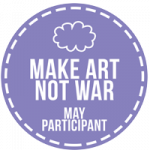
I suppose I could spend the next twenty minutes (or however long it takes to write this) to tell you about my 2012, but since many of my new releases (with the exception of Redwing’s Gambit) debuted later this year — instead I’m going to look ahead and show you an incentive program I’ve designed for myself in 2013. (WHICH IS GOING TO ROCK!)
I’m of the mind that how a writer treats their career is the same as how they’d view a brick-and-mortar day job. I hail from many positions/verticals mainly because I’ve absorbed as much as I possibly can to go into business for myself. At the same time, I’m a pragmatist who always looks at risks versus rewards, which have been reinforced over the years in my day job positions, but I’m not the type to do anything half-ass. I mentioned this earlier, but I don’t write for validation. Here’s the thing. Validation, pet projects, favors, etc. these are all intrinsic motivators. You write a story for a friend because it’s their birthday. You opt to submit a story to a fledgling outlet because you like the editor. You work on a project because you love the theme. That’s great, but those are secondary motivators for me.
Extrinsic motivators, in my mind, are the external or physical reasons why you write. You get paid. You see your books in Barnes and Noble. You have kids to feed. A husband to support. Etc. It’s the end result of your efforts, which can still be a reason why you write, but it’s not the emotional mojo jojo that is influencing your decision — it’s what you get out of it in a tangible, measurable way. (And that last phrase, what “you” get out of it, is a broad spectrum, indeed.)
So what works for me? Extrinsic motivators. I just built a bookshelf to house the published books I am proud to have worked on. These were projects I’m thrilled to be a part of and I’m excited about the finished product. The end result, for a few years anyway, was my modus operandi — but it was not a system that was built to last.
If you’ve read my blog, you know I’ve struggled with the idea of writing for myself on spec and eventually overcame it. You probably understand why. Well, this is the reason — there’s no extrinsic reward. Not right away, anyway. It’s all intrinsic for me, even if I have a polished manuscript to sell, until one day it isn’t. There it is. A published story. I’ve earned money (an important thing) on my words. Another book is sitting on my shelf. If I’m going to treat writing like a career, I have to earn a living, and I can’t do that by writing something that never sees the light of day. Them’s the brakes. No pressure, right?
I realized that if I need an extrinsic reward for my work, then I’m hurting myself by relying on the same type of reward all the time. By focusing on the same old, same old, I’m not marking my progress by what type of writing I’m doing but, rather, by what I publish or get paid for.
That’s dangerous crazy talk for me; this will make sense shortly. First, what a writer has done in their career, the end result, is how a lot of other people judge the value of that author. Oh, you’re not a “real” writer until… [book deal, movie deal, award, famous editor, type of publisher, etc. etc. etc.] This, to the working writer, is damaging because there are a number of factors beyond our control and, more importantly, don’t matter on a day-to-day basis. To write, I have to focus on what I’m doing now — not what has already happened or what’s going to occur. Also, in my mind? If I’m using the same common benchmarks that everyone else is, then I’m not enjoying the journey or the process, and I’m hurting myself by “measuring up” to somebody else. I’m ignoring what happens between “birth” (e.g. the nascent idea of a story) and “death” (e.g. when it’s published or when I get paid) of the story — but I’m the one who has to do the work.
What makes me unique, is my perspective, vision, and voice; every writer has to have some way to protect themselves (e.g. those intangible assets I just mentioned) and I’m no different. As my career grows, I need to rely on some form of extrinsic motivation to counteract the internal processes of creation, something that means a great deal to me. At first, I didn’t see this simple concept, but after a year of trial and error, I now understand why.
Eventually, I figured out that I lose motivation by inches when projects don’t succeed; my mood is horrendous if bad news piles up all at once. Why? Because if the extrinsic reward is either greatly delayed or nonexistent, then those motivators I’m counting on disappear fast. Books get canceled. The project leaders go bonkers. There’s a difference in creative opinion. I’m not writing-for-hire, I’m working for myself. I’m penning a long-term project that won’t see the light of day for a few years. Etc. Etc. Etc. To the public at large, a writer doesn’t seem to be “doing” anything if they can’t see the end result of their work. But this, simply, is not true.
Without anything to motivate myself in a tangible, measurable way, the act of creation withers and fades. Sometimes, no matter how hard you try, there isn’t an “end” in the publishing cycle. It’s just how it is. There is no “standard” cycle for book publishing because everyone writes at different speeds, deadlines aren’t the same, and no two writers are exactly alike. Not everybody’s a novelist. Not everybody can write multiple novels. Not everybody will be a best-seller, either.
Now, there are other extrinsic motivators that relate to the writing process. Tracking submissions, word counts, daily goals, etc. All of these count as measurable mini-goals that lend itself to the finished project or end goal (e.g. self-sustaining writer). What I needed to figure out, however, is what kind of extrinsic reward for personal career milestones will motivate me; these milestones are my benchmarks that tell me I’ve accomplished something. More importantly, they occur regardless of what I’m working on — whether that’s on spec or not.
In my case, my extrinsic motivator is a charm bracelet. Yep, I sucked it up and bought a sterling silver Pandora-style bracelet. Then, I rewarded myself for all of 2012 with one bead. This is my starting point. As 2013 progresses, I’ll reward myself after each milestone by adding a single bead to the bracelet. I’ve already picked a theme. The sea. (Primarily because I like skulls as a theme in jewelry and pirates were a creative way to go. Hoping to find a Cthulhu-one!) It may sound incredibly silly, but this bracelet is my extrinsic motivator; not only is it something I can wear now, it’s a piece I can add on to and have a memory to go with each component. And, it’s a constant reminder of the promise I made to myself. Every time I look at this bracelet, I know what I pledge to do this year.
This way, I have a tangible, measurable method of tracking whether or not I make good on that promise. This way, I have a series of small, extrinsic motivators that will happen regardless of what the end result might be.
And this way, I have a method of seeing the progress I’ve made. The more beads I add, the more satisfied I’ll be with my work.
Mood: Inspired
Caffeinated Beverages Consumed: Manageable.
Work-Out Minutes Logged Yesterday: There was cleaning to be done.
In My Ears: Clubbed to Death (Kurayamino Variation) The Matrix soundtrack
Game Last Played: Tetris
Movie Last Viewed: Resident Evil: Apocalypse
Latest Artistic Project: Holiday gifts
Latest Release: “The Button” We Are Dust anthology



